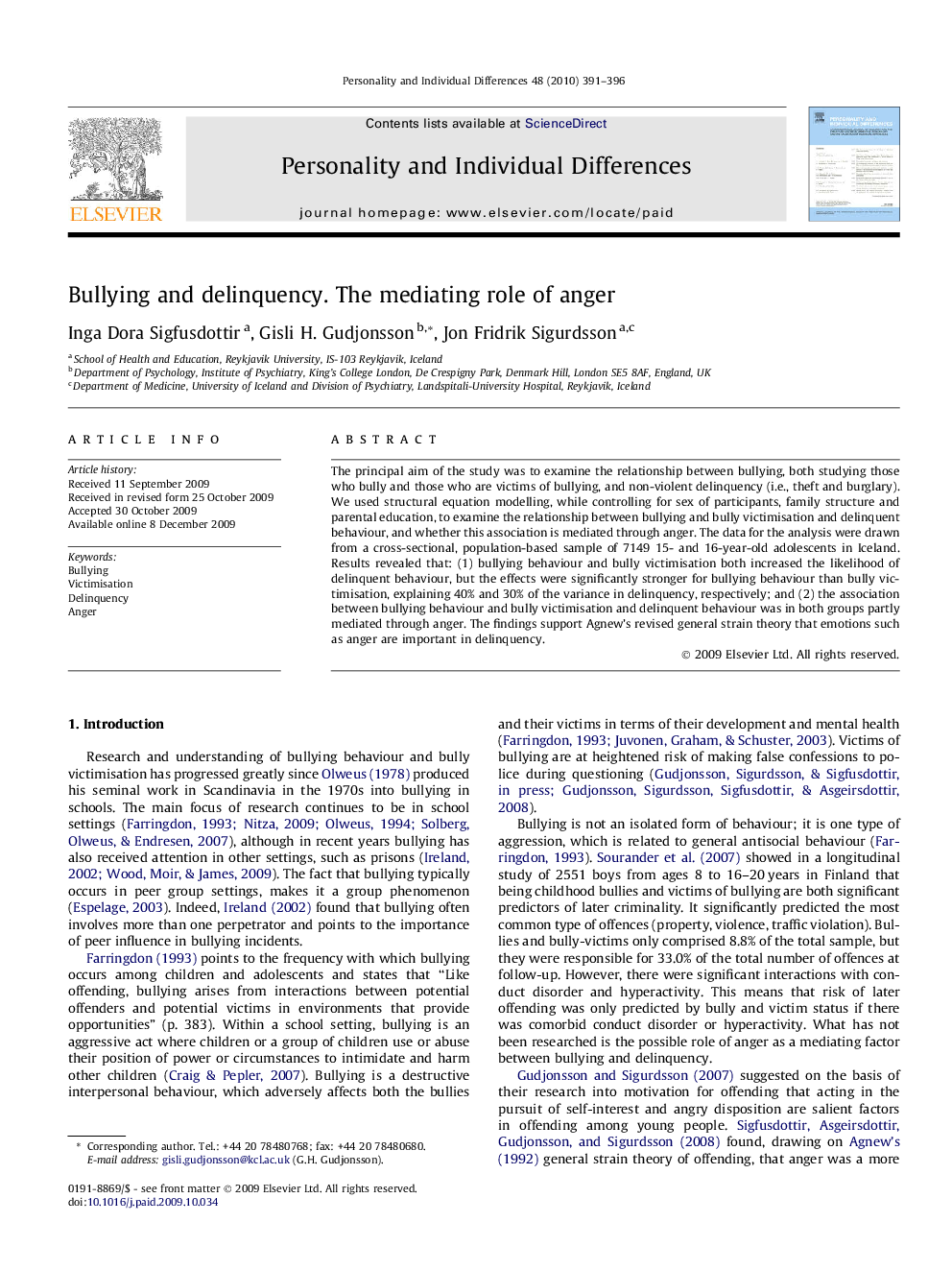| Article ID | Journal | Published Year | Pages | File Type |
|---|---|---|---|---|
| 892146 | Personality and Individual Differences | 2010 | 6 Pages |
The principal aim of the study was to examine the relationship between bullying, both studying those who bully and those who are victims of bullying, and non-violent delinquency (i.e., theft and burglary). We used structural equation modelling, while controlling for sex of participants, family structure and parental education, to examine the relationship between bullying and bully victimisation and delinquent behaviour, and whether this association is mediated through anger. The data for the analysis were drawn from a cross-sectional, population-based sample of 7149 15- and 16-year-old adolescents in Iceland. Results revealed that: (1) bullying behaviour and bully victimisation both increased the likelihood of delinquent behaviour, but the effects were significantly stronger for bullying behaviour than bully victimisation, explaining 40% and 30% of the variance in delinquency, respectively; and (2) the association between bullying behaviour and bully victimisation and delinquent behaviour was in both groups partly mediated through anger. The findings support Agnew’s revised general strain theory that emotions such as anger are important in delinquency.
